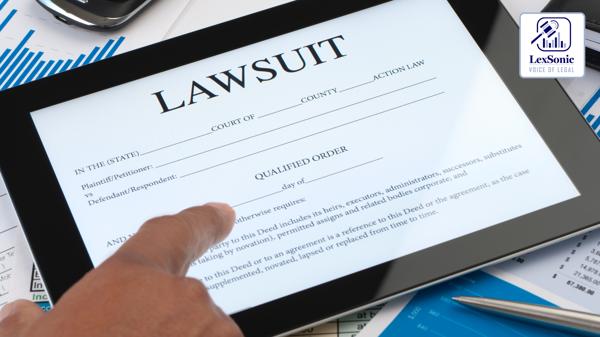A recent ruling by the High Court of Judicature at Bombay, delivered on November 5, 2024, by a learned Civil Judge, has reiterated the critical importance of "due diligence" when seeking to amend pleadings after the commencement of a trial. The judgment, arising from a writ petition challenging an order allowing such an amendment, underscores that the proviso to Order VI Rule 17 of the Code of Civil Procedure, 1908, imposes a strict jurisdictional barrier.
The case in question, Special Civil Suit No. 1228 of 2017, involved a declaration suit concerning property shares, partition, rendition of accounts, and consequential reliefs. The petitioners (original plaintiffs) and respondent nos. 8 and 9 had initiated the suit claiming a 3/5th share in the properties, alleging that one of the defendants had usurped them through false and forged documents.
The Procedural Timeline:
The suit commenced with the filing of a written statement by defendant nos. 1 and 2 on March 6, 2018. Issues were subsequently settled, and the plaintiffs filed an affidavit in lieu of examination-in-chief, followed by an additional affidavit in April 2022. Significantly, when the matter was set for cross-examination – signaling the commencement of the trial – defendant no. 2 sought to amend the written statement.
The application for amendment, filed under Order VI Rule 17 of the Code, argued that a newly engaged advocate, upon reviewing the pleadings and record, found amendments necessary to provide "better particulars, additional information, explanations, additional defences and certain contentions."
The Trial Court's Contradiction:
The learned Civil Judge, while allowing the amendment, made a crucial observation: the defendant no. 2 "was not diligent in seeking the amendment." Despite this explicit finding of a lack of diligence, the court proceeded to permit the amendment, reasoning that it would not alter the nature of the defense, was explanatory, and necessary for a comprehensive determination of the controversy. This decision, however, became the focal point of the challenge brought by the plaintiff.
Arguments Before the High Court:
Mr. Wakankar, learned counsel for the petitioner/plaintiff no. 1, forcefully argued that the trial court committed a jurisdictional error. He contended that once a finding of "want of due diligence" is recorded, the court is divested of its power to allow an amendment, especially after the trial has begun. He highlighted that the only reason provided for the delay was a change in advocates, which, he submitted, is not a justifiable ground under the proviso to Order VI Rule 17. Mr. Wakankar cited several Supreme Court judgments, including Vidyabai and Ors. Vs. Padmalatha and Anr. and Samuel and Ors Vs. Gattu Mahesh and Ors, to buttress his point on the mandatory nature of the due diligence requirement.
Conversely, Mr. Saurabh Butala, learned counsel for the respondent no. 2, sought to defend the trial court's order. He argued that the plaintiffs were also responsible for delays in the suit. He asserted that the proposed amendment merely amplified existing contentions and provided additional explanations, thus not fundamentally altering the defense. Mr. Butala emphasized the generally more liberal approach taken by courts when a defendant seeks to amend a written statement, as the prejudice to the plaintiff is typically less severe. He relied on Supreme Court precedents such as Usha Balasaheb Swami and Ors Vs. Kiran Appaso Swami and Ors., which advocate for a liberal approach to amendments.
The High Court's Scrutiny and Ruling:
The High Court meticulously examined the well-established principles governing pleading amendments. It acknowledged that amendments necessary for resolving the "real questions in controversy" should generally be allowed, provided they do not cause irretrievable prejudice or introduce time-barred reliefs. The court also recognized the more liberal stance towards amendments of written statements, allowing for inconsistent or alternative defenses.
However, the core of the High Court's analysis centered on the proviso to Order VI Rule 17. This proviso explicitly states that "no application for amendment shall be allowed after the trial had commenced unless the Court comes to the conclusion that in spite of due diligence, the party could not have raised the matter before the commencement of trial." The High Court, referencing Vidyabai and Ors., underscored that this "due diligence" is a "jurisdictional fact" – meaning its satisfaction is a prerequisite for the court to exercise its power to allow an amendment post-trial.
Defining "due diligence" as a "careful and persistent application or effort" and "doing everything reasonable, not everything possible," the court found the defendant no. 2's explanation (change of advocate) to be insufficient. It noted that the application was "conspicuously silent" on how the amendment could not have been sought earlier despite diligent effort. Crucially, the trial court had already found a lack of diligence, yet proceeded to allow
the amendment.
The High Court concluded that, in the absence of any material demonstrating due diligence, and with an explicit finding by the trial court to the contrary, the jurisdictional condition for allowing the amendment post-trial had not been met. It concurred with the petitioner that a mere change in legal representation does not constitute sufficient grounds for overcoming the due diligence requirement.
Consequently, the High Court allowed the writ petition, quashed and set aside the impugned order, and rejected the application for amendment in the written statement.
Implications of the Judgment:
This ruling serves as a vital reminder to litigants and legal practitioners about the strict adherence required to procedural timelines, especially after a trial has commenced. It reinforces that while courts generally maintain a flexible approach to amendments, the proviso to Order VI Rule 17 is a significant statutory restriction that demands clear proof of "due diligence" to justify any proposed changes to pleadings once the trial stage is reached.
The judgment clarifies that simply engaging a new advocate is not an automatic gateway to amending statements after the commencement of trial, emphasizing that parties bear the burden of proving that, despite their best efforts, the amendments could not have been raised earlier.

